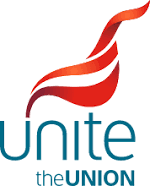"That's a sin" said Iain Duncan Smith, successor to Norman Tebbit as MP for Chingford, failed Tory leader and now Secretary of State for Work and Pensions, on the Today programme last week.
No-one is quite sure what he meant. He had been discussing jobs, and the lack of them; immigrants taking those jobs and British people refusing to take those jobs; plus a number of other issues relating to work, working and workers of various kinds and nationalities.
"Sin" is an interesting choice of word in this context, even - or especially - from a man who makes no secret of his devout Christianity and/or Catholicism.
It can't be a slip of the tongue: it's an important word for people like him, a wilful transgression of religious law. It's not to be used flippantly or irreverently.
So what exactly is sinful here?
4.5 million people unemployed? Or 70% of them taken by foreigners? Or 20% of households on welfare despite the so-called New Labour boom? Or what?
As a listener, I couldn't tell exactly what he was talking about. But it was clear that his religious feelings were offended in some way by these people, and that the unemployed are in serious breach of some unspecified moral law.
It was scary. He'd been almost rational up to that point. And then, something fundamental rose up from his gut.
Religion is no longer the opium of the people; it's the crystal meth of right-wing politicians.
PS. Someone else who won't know exactly what Duncan Smith meant is Bullingdon Boris, who wrote in his Telegraph column that "Bruce Forsyth could present Newsnight and they could bring back Basil Brush to present the Today programme. It wouldn't make the blindest bit of difference to my state of knowledge about the world".
Of course it wouldn't, Boris. Your world view was formed many years ago, and your education at Eton and Oxford (including of course the Bullingdon Club) merely reinforced it. Listening to impartial, objective and disinterested news items is only going to confuse you.
Today's listening: The Tubes, What do you want from life?
No-one is quite sure what he meant. He had been discussing jobs, and the lack of them; immigrants taking those jobs and British people refusing to take those jobs; plus a number of other issues relating to work, working and workers of various kinds and nationalities.
"Sin" is an interesting choice of word in this context, even - or especially - from a man who makes no secret of his devout Christianity and/or Catholicism.
It can't be a slip of the tongue: it's an important word for people like him, a wilful transgression of religious law. It's not to be used flippantly or irreverently.
So what exactly is sinful here?
4.5 million people unemployed? Or 70% of them taken by foreigners? Or 20% of households on welfare despite the so-called New Labour boom? Or what?
As a listener, I couldn't tell exactly what he was talking about. But it was clear that his religious feelings were offended in some way by these people, and that the unemployed are in serious breach of some unspecified moral law.
It was scary. He'd been almost rational up to that point. And then, something fundamental rose up from his gut.
Religion is no longer the opium of the people; it's the crystal meth of right-wing politicians.
PS. Someone else who won't know exactly what Duncan Smith meant is Bullingdon Boris, who wrote in his Telegraph column that "Bruce Forsyth could present Newsnight and they could bring back Basil Brush to present the Today programme. It wouldn't make the blindest bit of difference to my state of knowledge about the world".
Of course it wouldn't, Boris. Your world view was formed many years ago, and your education at Eton and Oxford (including of course the Bullingdon Club) merely reinforced it. Listening to impartial, objective and disinterested news items is only going to confuse you.
Today's listening: The Tubes, What do you want from life?





 RSS Feed
RSS Feed